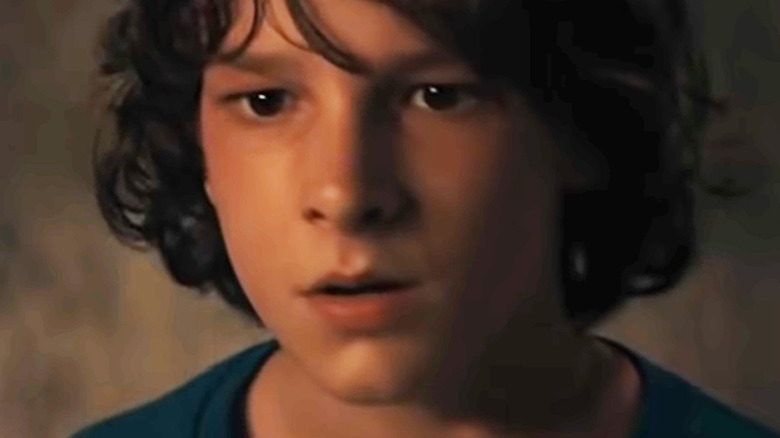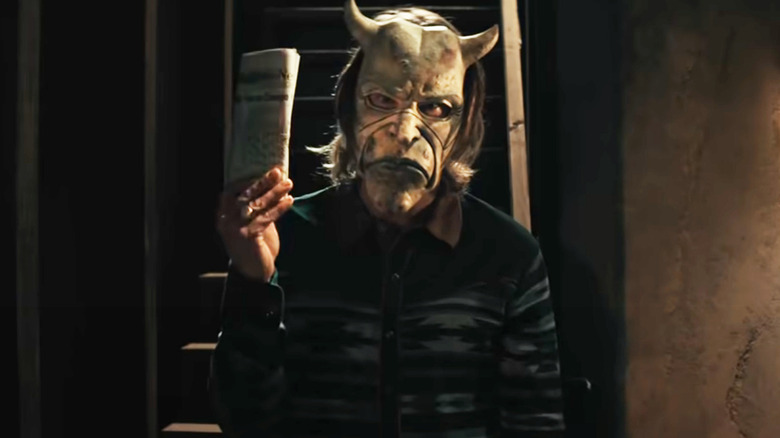Is The Black Phone Based On A True Story?
Reviews of "The Black Phone," which is director Scott Derrickson's latest horror film, began to circulate online just prior to its June 24 release. Critics generally had good things to say, many of whom praised its cast as one of its biggest strengths.
In "The Black Phone," seasoned actor Ethan Hawke portrays a serial child murderer named The Grabber, who serves as its big bad. As The Grabber, Hawke sports masks that Tom Savini designed, placing him in a long lineage of masked movie killers. Opposite Hawke is Mason Thames as Finney, a kidnapped child attempting to escape captivity before The Grabber can carry out his murder. Madeleine McGraw also plays an important role in the film as Finney's sister Gwen, whose psychic visions point her toward her missing brother.
Since this and other supernatural occurrences factor heavily into "The Black Phone," it might seem safe to assume that its story is a wholly original creation of Derrickson and his collaborators. As it turns out, however, the truth is a little more complicated.
The Black Phone is inspired by Derrickson's childhood
While outright impossible supernatural happenings are somewhat frequent throughout "The Black Phone," the more grounded aspects of its story were inspired by real-life experiences from director Scott Derrickson's childhood. In fact, in an interview with The New York Times asking him to share his five biggest influences on "The Black Phone," Derrickson listed his own childhood at number one.
Derrickson explained that he set the film in North Denver, Colorado in the late 1970s, mirroring the time and place of his own upbringing. "There was a lot of violence — everybody got whipped by their parents, there was fighting on the way to school, on the way home from school, at school," he said. He even recalled a time when a friend recounted the kidnapping and murder of his own mother.
Derrickson shared some further insight into his childhood and how it shaped "The Black Phone" in an interview with news.com.au. "It was also right after Ted Bundy had come through Colorado, killing people. And the Manson murders had just happened," he said. "Parents punished children much more aggressively, and so it was a very violent, scary kind of place to grow up in a lot of ways. And I tried to bring that environment realistically into the movie."
So, while details like The Grabber and Finney's psychic sister may be wholesale inventions, the time and place in "The Black Phone" do indeed have a basis in reality.

